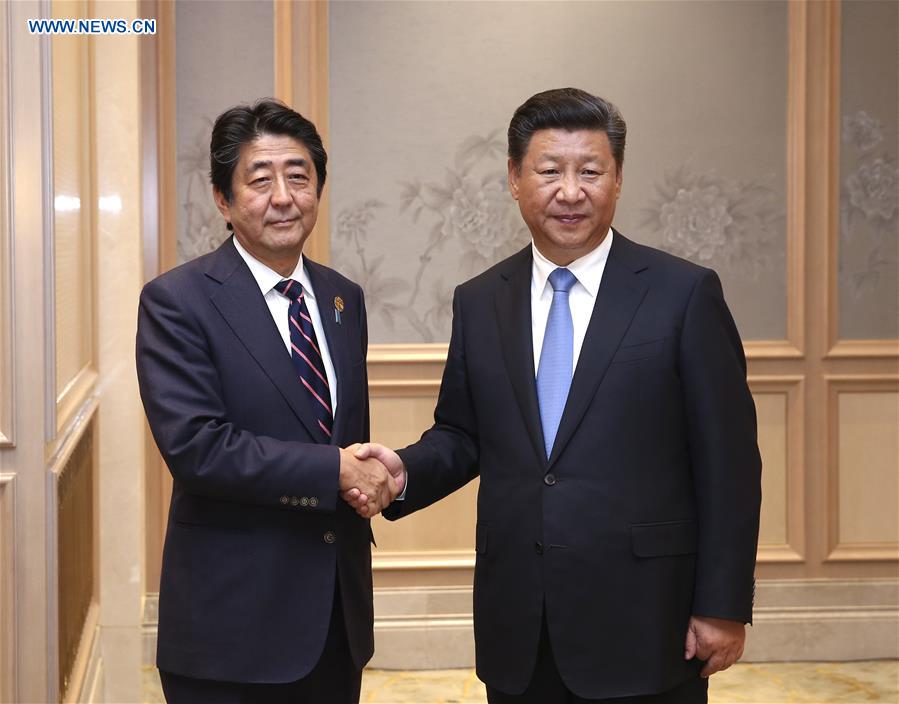Full coverage: G20 Hangzhou Summit
Related Reading:
HANGZHOU, Sept. 5 (Xinhua) -- President Xi Jinping told Japanese Prime Minister Shinzo Abe on Monday that China and Japan should "put aside disruptions" and bring their relations back on the normal track as soon as possible.

Chinese President Xi Jinping meets with Japanese Prime Minister Shinzo Abe, who is here to attend the Group of 20 (G20) summit, in Hangzhou, capital of east China's Zhejiang Province, Sept. 5, 2016. (Xinhua/Pang Xinglei)
In their meeting held after a two-day G20 summit in the resort city of Hangzhou, Xi said China and Japan are important and close neighbors to each other.
Long-term, healthy and stable development of bilateral ties is conducive to the benefits of people from both countries and to regional peace and stability, Xi said.
He said currently Sino-Japanese ties are still "troubled by complications at times." The two countries should put aside such disruptions and propel bilateral relations back on the track of normal development as soon as possible.
According to the Chinese president, China's basic standpoint to improve its relations with Japan has not changed. Bilateral ties have entered a key phase, where "no progress means regression."
"Both sides should bolster their sense of responsibility and crisis awareness, and work to build on the positive elements of bilateral ties while putting a lid on negative ones, in order to ensure stable improvement of relations," Xi said.
They should also make the most of the 45th anniversary of normalization of Sino-Japanese ties in 2017, and the 40th anniversary of the signing of the Treaty of Peace and Friendship between China and Japan the year after, to push forward Sino-Japanese ties, he said.
Xi stressed that China and Japan should adhere to their four political documents and the four-point principled agreement reached in late 2014, in a bid to ensure that their political foundation of bilateral relations will stand firm.
The two countries should properly "manage historical issues, and prevent new issues from emerging" in a bid to cut back on the "stumbling blocks," Xi added.
When talking about China-Japan cooperation, Xi noted that the two countries are highly complementary in economy, and that they could strengthen macroeconomic communication and raise the level of practical cooperation in all sectors.
The two sides should also carry forward the tradition of people-to-people friendship and boost exchanges at local levels.
"Both countries should follow the new concept featuring win-win cooperation, make joint efforts to advance regional cooperation, and address global challenges," he said.
The Chinese president said China and Japan should properly handle the East China Sea issue via dialogue and consultation to jointly safeguard peace and stability in the region.
Japan, he said, should "exercise caution in its words and deeds" on the South China Sea issue, so as not to disrupt the improvement of Sino-Japanese ties.
Abe, for his part, congratulated China on the success of the G20 Hangzhou summit.
He said Japan attaches great importance to its relations with China, noting the two countries are "neighbors that can not be parted."
Tokyo is willing to establish political trust with Beijing, and will work to improve bilateral ties in the spirit of consensus reached between the two countries, and maintain dialogues on relevant issues.
Abe added that Japan hopes to step up cooperation with China in finance, trade and environmental protection.















